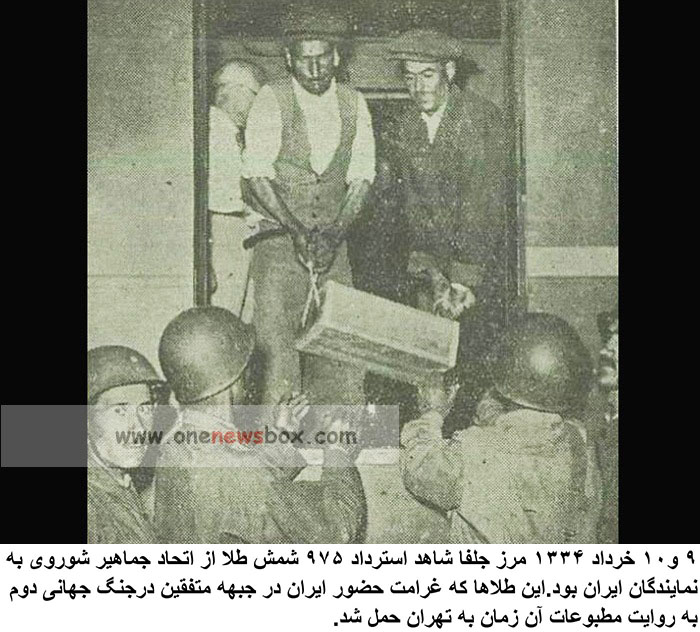I. The Announcement That Echoed Through History
Seventy years ago, in the shadow of post-World War II geopolitics, a quiet but historically significant announcement made its way across headlines in Iran and beyond. In December 1955, the then-government of the former Soviet Union formally declared that it would compensate Iran for the occupation it had endured during the global conflict. The form of this compensation was as symbolic as it was material: 11 tons of pure gold were to be delivered to Iranian officials at the Jolfa border—a remote frontier post that would soon find itself at the center of a pivotal, if little-remembered, moment in international relations.
The gesture was unexpected, not because Iran’s claim lacked merit, but because the context of Soviet-Iranian relations had long been strained, complicated by decades of political friction, ideological rivalry, and regional power plays. For Iran, the Soviet presence during the war had been a bitter pill. Although the occupation was initially justified by Allied needs to secure supply routes to the Eastern Front, its prolonged aftermath—marked by Soviet interference in Iranian domestic politics, particularly in the northwestern provinces—left scars that ran deep.
